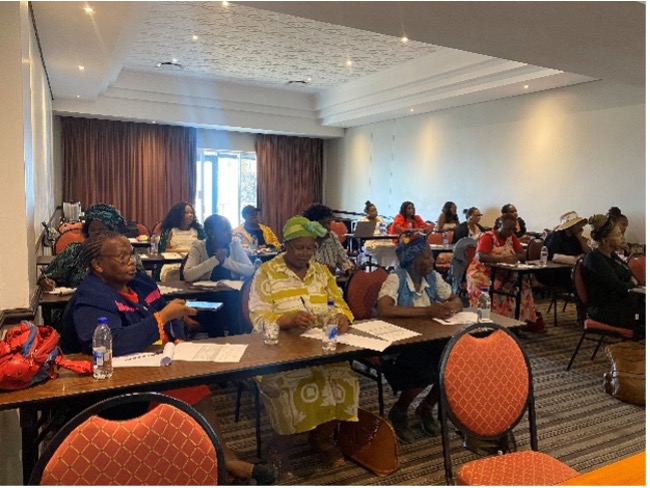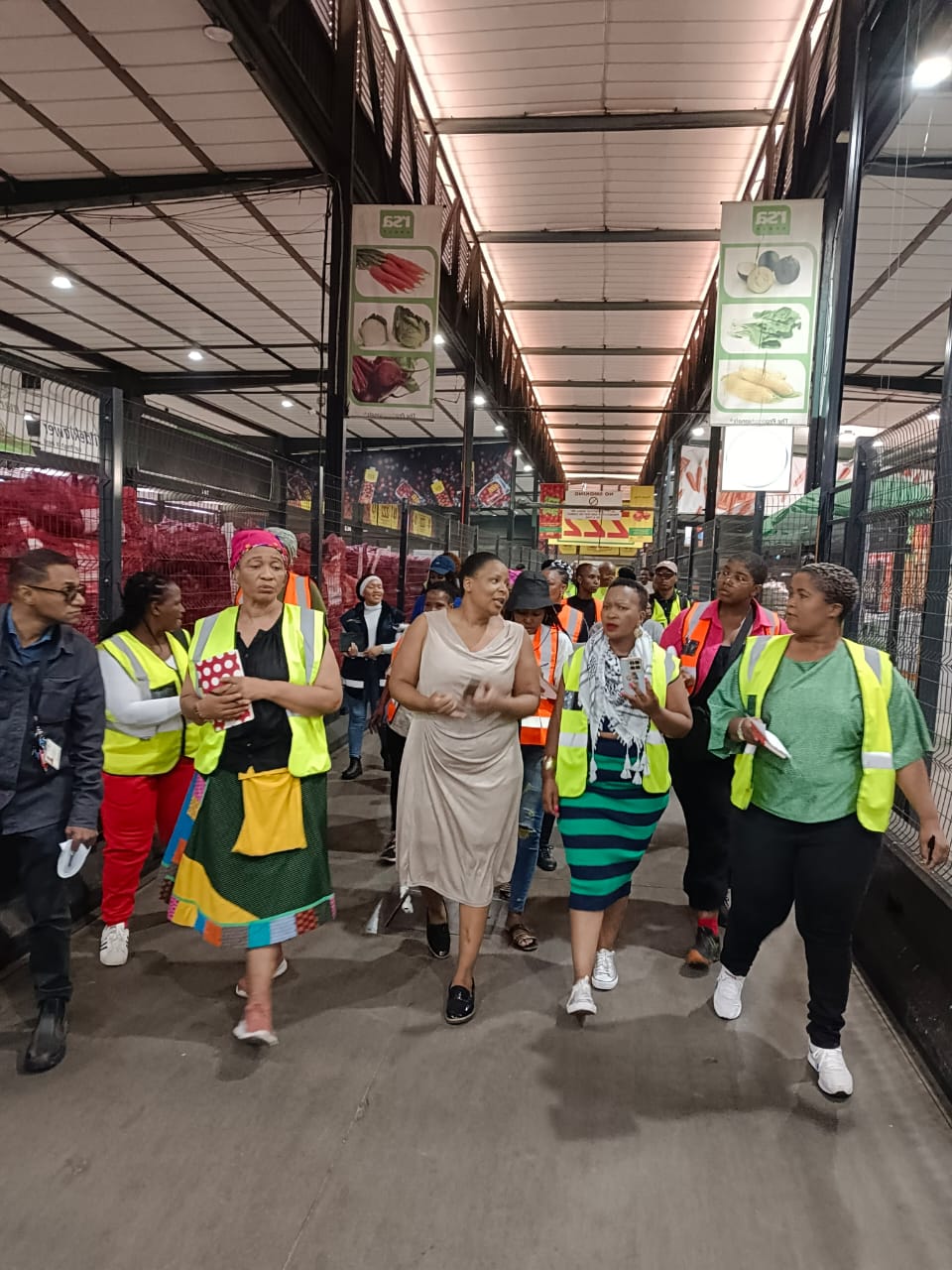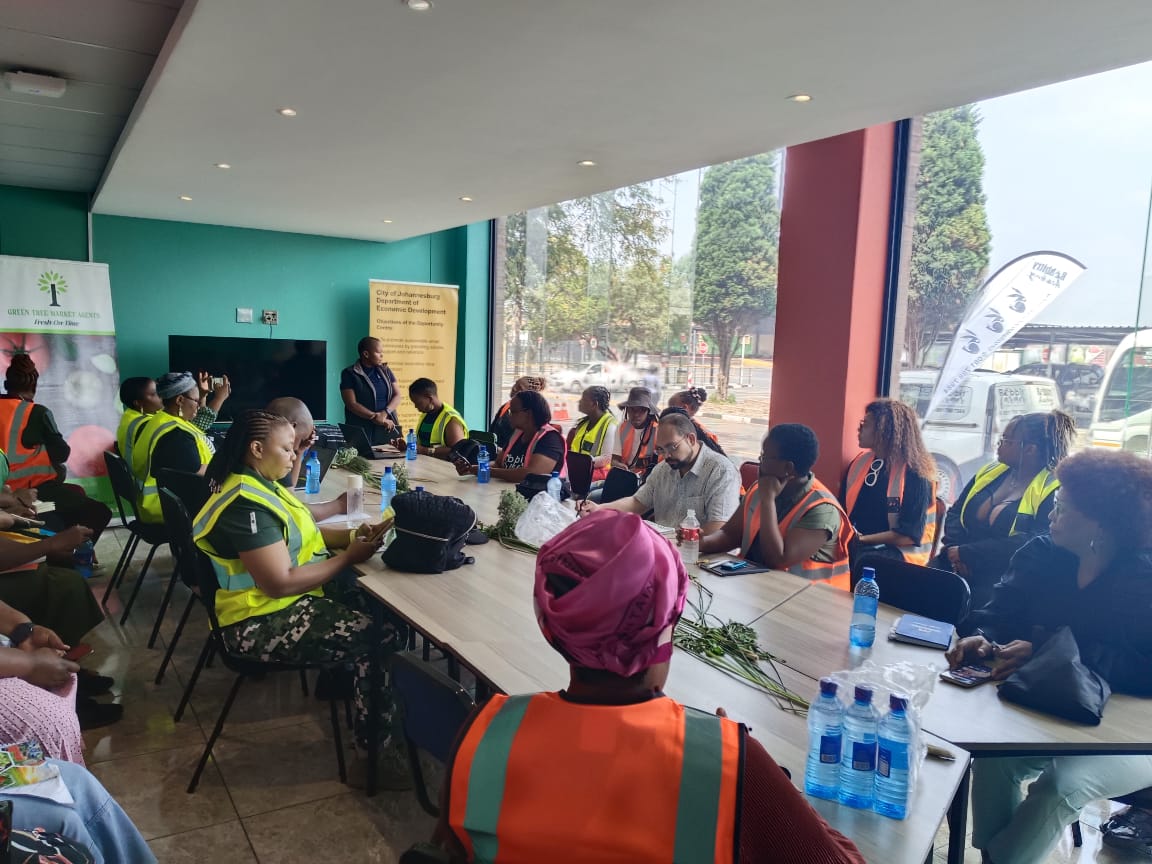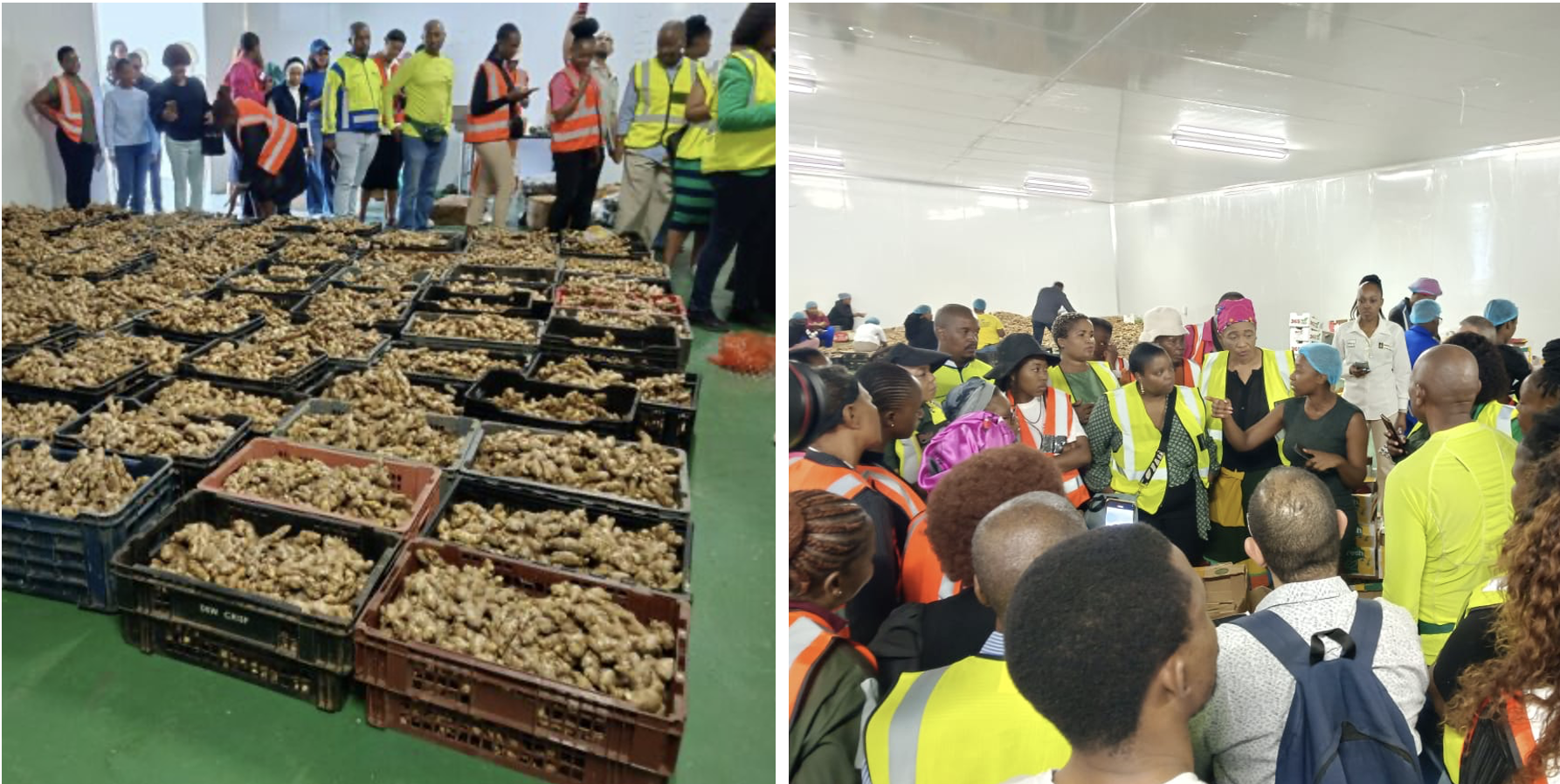Women play a critical role in agricultural production, significantly contributing to food security, rural development, and community resilience. Despite this, they remain largely excluded from agribusiness opportunities and formal markets due to structural inequalities, limited market information, and deep-rooted gender biases. The Graça Machel Trust facilitates inclusive and sustainable trade by enabling women agri-preneurs to directly engage with market players, gain insights on procurement requirements, and effectively navigate the business landscape. Recent Provincial market access workshops in the Eastern Cape and Gauteng illustrate these initiatives, providing tangible pathways for women entrepreneurs to enter local supply chains.
From talk to transformation: Market access in action
In the Eastern Cape, 23 women entrepreneurs gathered at the Regent ICC in East London, engaging directly with the leadership of Buffalo City Metro’s Fresh Produce Market. A key highlight was the introduction of Food Hubs which caters for small-scale producers. Tandi Hopa, Founder of Riverbend Farming in East London, emphasised the transformative potential of these hubs:
“Instead of farmers being price-takers when they deliver produce to market agents, they can now bring their produce to the food hub and set their prices. We accommodate smaller volumes tailored for household consumption, empowering farmers to take control of their pricing. Our goal is also to establish satellite markets at the village and regional levels, overcoming transportation barriers and enabling farmers to sell directly within their communities.”
Participants openly discussed challenges such as supply-demand mismatches, inconsistent production, and limited market visibility due to established networks. The collaborative spirit emerged as entrepreneurs committed to joint production models and recognised Food Hubs as a crucial stepping stone to market inclusion.

In Johannesburg, women entrepreneurs toured the Jo’burg Fresh Produce Market, hosted by Green Tree Agents (Pty). The visit offered firsthand insights into quality standards, food safety protocols, and financing options—clarifying the procurement process and the practical tools needed to meet buyer expectations.
Sibongile Cele, founder of Green Tree Agents and one of the entrepreneurs in the GMT project, drew from her own experience to share this valuable advice:
“One mistake women entrepreneurs often make is undervaluing their produce or not fully understanding market demands. Entrepreneurs should clearly understand quality standards, price competitively, and prioritise consistency in production to build long-term relationships with buyers.”

Photo: Women agri-preneurs explore Johannesburg Fresh Produce Market, gaining practical knowledge about quality standards and procurement processes.

Photo: Entrepreneurs and market stakeholders networking to create meaningful connections and forge pathways toward inclusive and equitable trade.
By creating shared spaces for dialogue, knowledge exchange, and collaboration, the project is driving sustainable change for women in agribusiness.
Women have the will, the skill, and the product. What they need is access. Through strategic partnerships and targeted interventions, the Trust is helping to level the playing field—making it fair for all.
Lehlogonolo Ratlabyana, Programme Officer at the Trust, highlighted: “Access to capital and land ownership remain significant barriers for women entrepreneurs. So we need intentional, gender sensitive reforms to help women grow their businesses and scale them. The project continues to create meaningful opportunities, driving lasting economic transformation.

Photo: Women entrepreneurs tour a packaging and retail distribution warehouse, guided by an industry expert who explains critical insights into market distribution processes—equipping them to effectively navigate the agribusiness value chain and enhance their market readiness

Photo: A vibrant showcase of fresh produce presented by women entrepreneurs, demonstrating their readiness and capacity to engage in formal agribusiness markets.










 The Trust supports and mobilises civil society networks on issues of ending child marriage, ending violence against children, ending female genital mutilation and promoting children’s rights, to carry out advocacy and action across Africa. Special focus is placed on Malawi, Mozambique, Tanzania and Zambia where child marriage continues to be a problem largely driven by poverty, gender inequality, harmful traditional practices, conflict, low levels of literacy, limited opportunities for girls and weak or non-existent protective and preventive legal frameworks.
The Trust supports and mobilises civil society networks on issues of ending child marriage, ending violence against children, ending female genital mutilation and promoting children’s rights, to carry out advocacy and action across Africa. Special focus is placed on Malawi, Mozambique, Tanzania and Zambia where child marriage continues to be a problem largely driven by poverty, gender inequality, harmful traditional practices, conflict, low levels of literacy, limited opportunities for girls and weak or non-existent protective and preventive legal frameworks.




 Education is a fundamental right for all children, which is also a vehicle for social, economic and political transformation in communities, countries and the African continent at large. Recent studies indicate a lack of progress in some of the critical commitments aimed at improving education quality, access, retention and achievement, particularly for girls. In most African countries, girls may face barriers to learning, especially when they reach post-primary levels of education. By implementing multi-dimensional approaches to education which includes core education, personal development, life skills and economic competencies, the Trust partners with funding partners, governments, civil societies and the private sector to improve education access.
Education is a fundamental right for all children, which is also a vehicle for social, economic and political transformation in communities, countries and the African continent at large. Recent studies indicate a lack of progress in some of the critical commitments aimed at improving education quality, access, retention and achievement, particularly for girls. In most African countries, girls may face barriers to learning, especially when they reach post-primary levels of education. By implementing multi-dimensional approaches to education which includes core education, personal development, life skills and economic competencies, the Trust partners with funding partners, governments, civil societies and the private sector to improve education access.

 The Nutrition and Reproductive, Maternal, New-born, Child and Adolescent Health and Nutrition, (RMNCAH+N) of the Children’s Rights and Development Programme aims at promoting the Global Strategy for women, children and adolescents’ health within the Sustainable Development Goals (SDG) agenda. The strategy emphasises on the importance of effective country leadership as a common factor across countries making progress in improving the health of women, children and adolescents.
The Nutrition and Reproductive, Maternal, New-born, Child and Adolescent Health and Nutrition, (RMNCAH+N) of the Children’s Rights and Development Programme aims at promoting the Global Strategy for women, children and adolescents’ health within the Sustainable Development Goals (SDG) agenda. The strategy emphasises on the importance of effective country leadership as a common factor across countries making progress in improving the health of women, children and adolescents. Through its Early Childhood Development (ECD) plan, The Trust will seek to put into action the new science and evidence Report that was presented by Lancet Series on Good and early development – the right of every child. This will be achieved by mobilising like-minded partners to contribute in the new science and evidence to reach all young children with ECD. The Trust’s goal is to be a catalyst for doing things differently, in particular, to rid fragmentation and lack of coordination across ECD sectors. In response to evidence showing the importance of political will in turning the tide against the current poor access and quality of ECD. Even before conception, starting with a mother’s health and social economic conditions, the early years of a child’s life form a fundamental foundation that determines whether a child will survive and thrive optimally.
Through its Early Childhood Development (ECD) plan, The Trust will seek to put into action the new science and evidence Report that was presented by Lancet Series on Good and early development – the right of every child. This will be achieved by mobilising like-minded partners to contribute in the new science and evidence to reach all young children with ECD. The Trust’s goal is to be a catalyst for doing things differently, in particular, to rid fragmentation and lack of coordination across ECD sectors. In response to evidence showing the importance of political will in turning the tide against the current poor access and quality of ECD. Even before conception, starting with a mother’s health and social economic conditions, the early years of a child’s life form a fundamental foundation that determines whether a child will survive and thrive optimally.